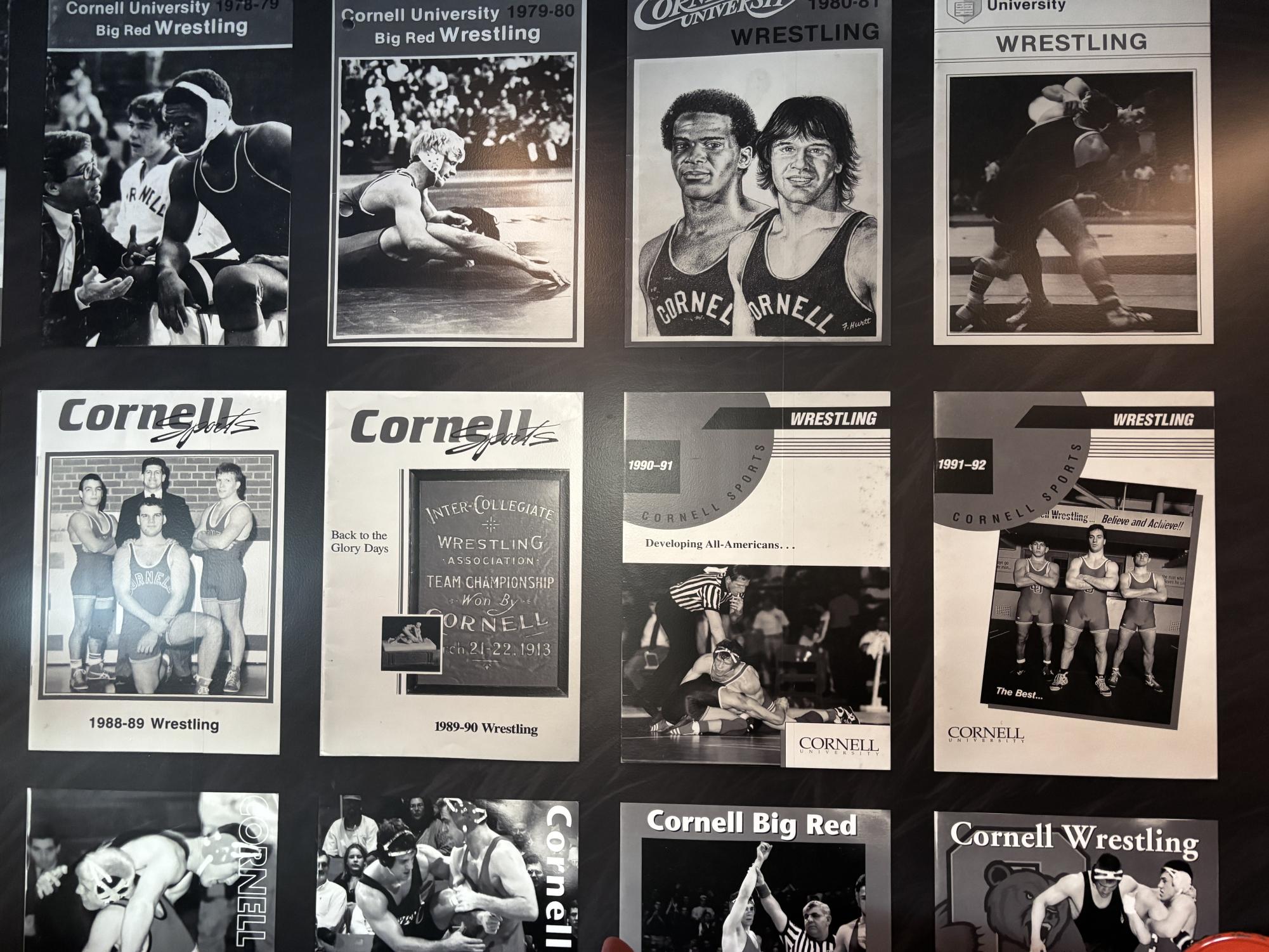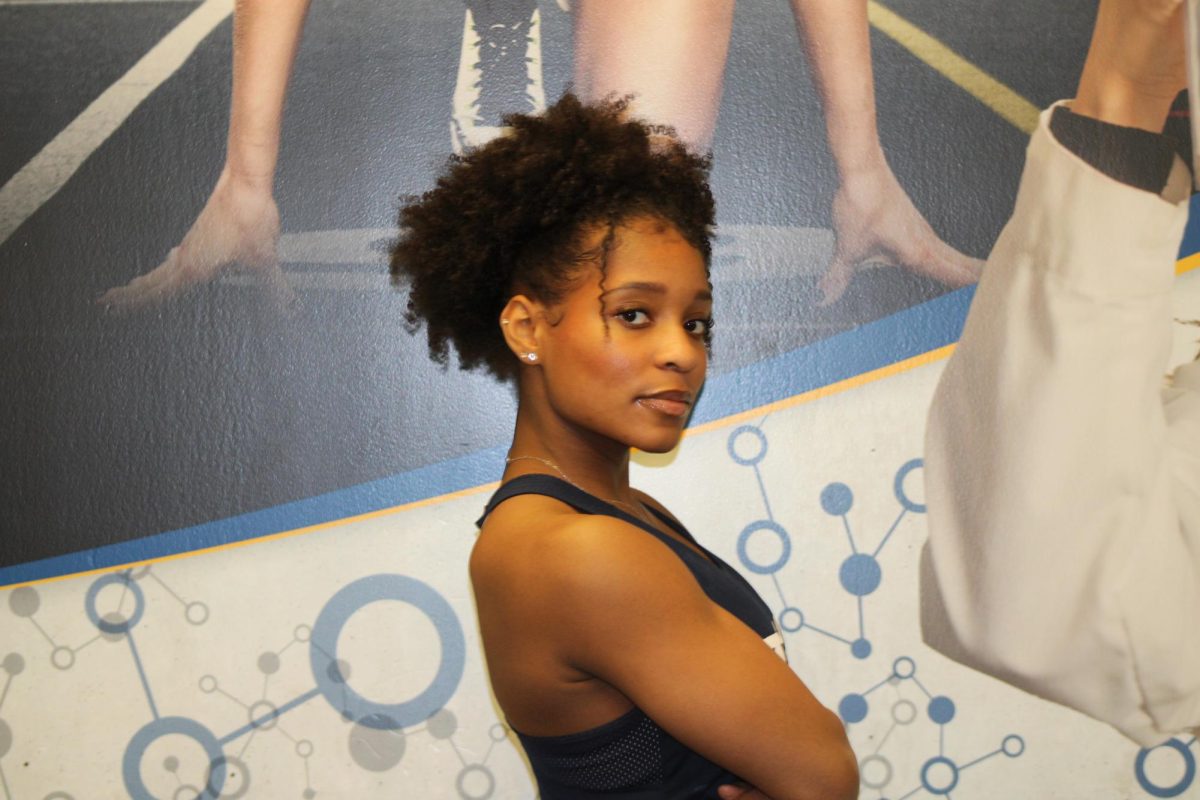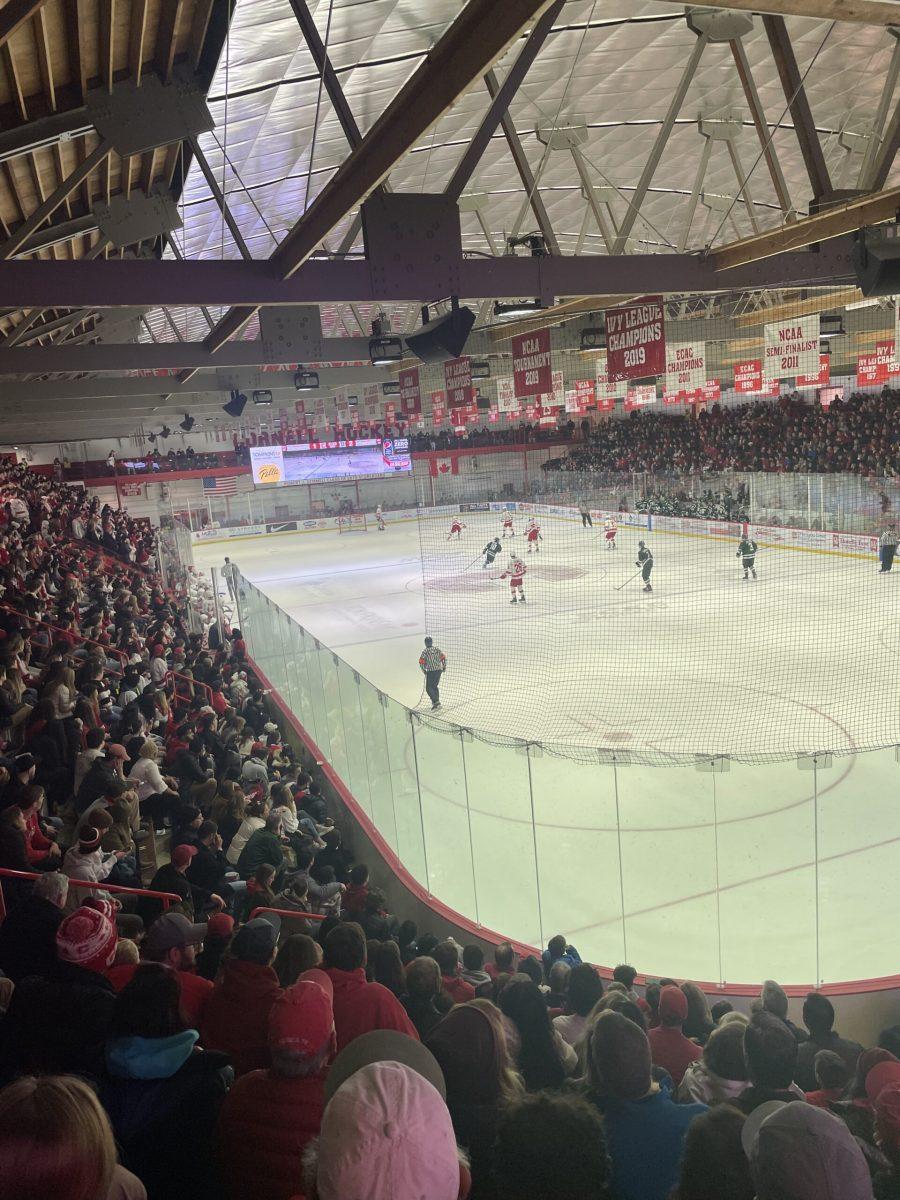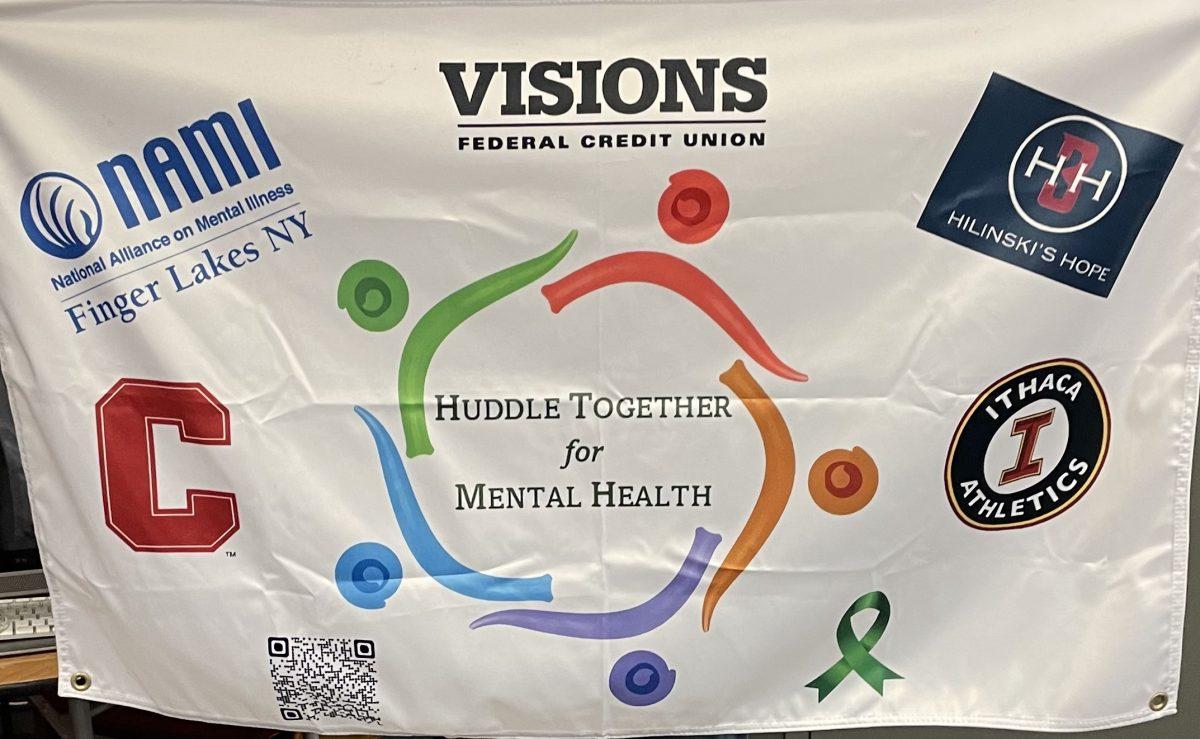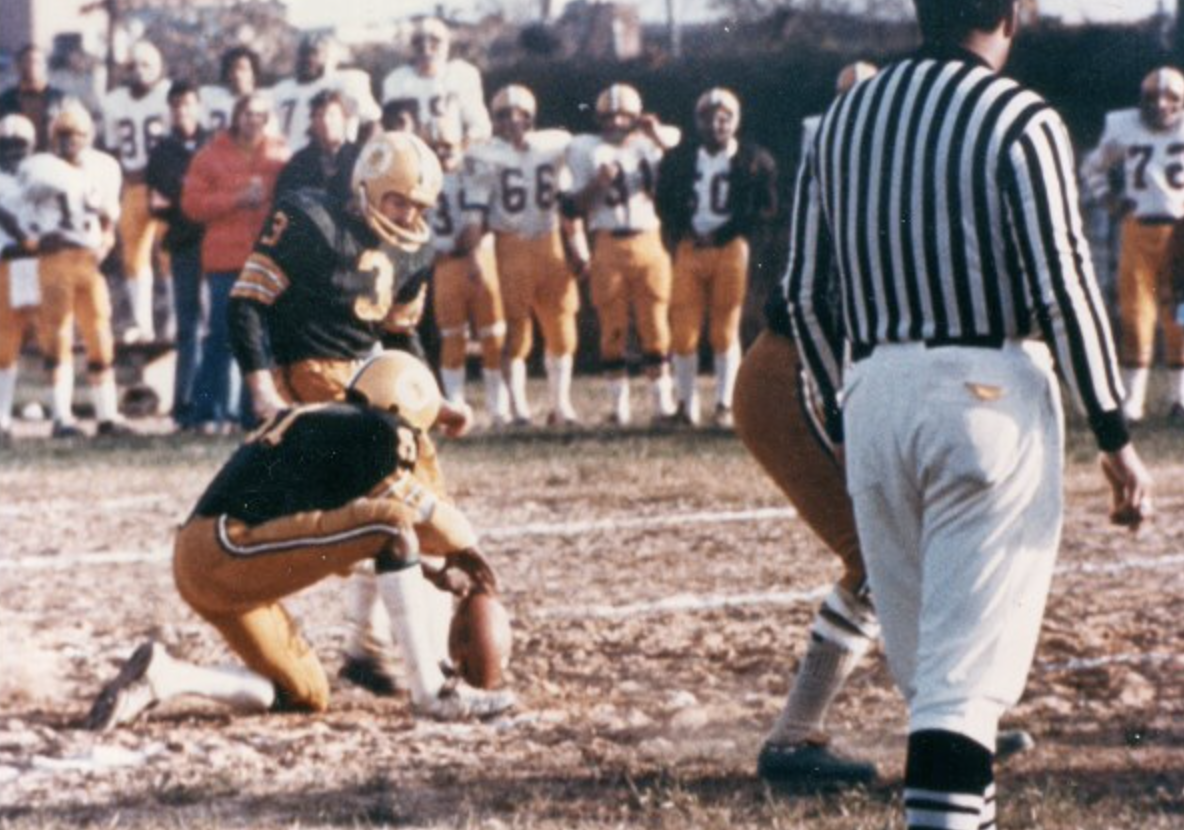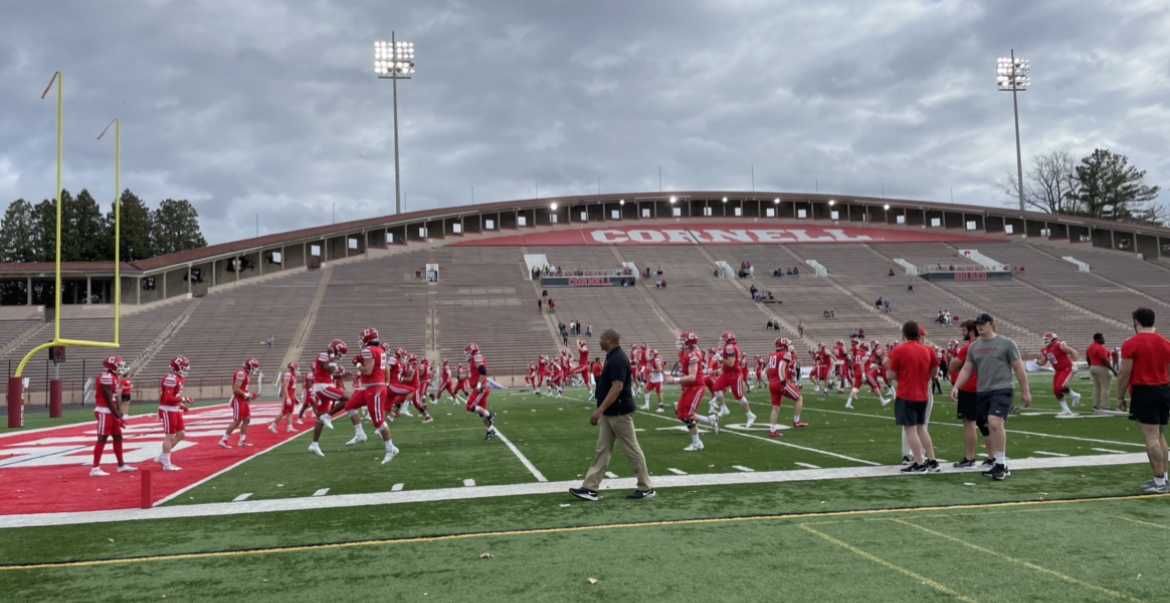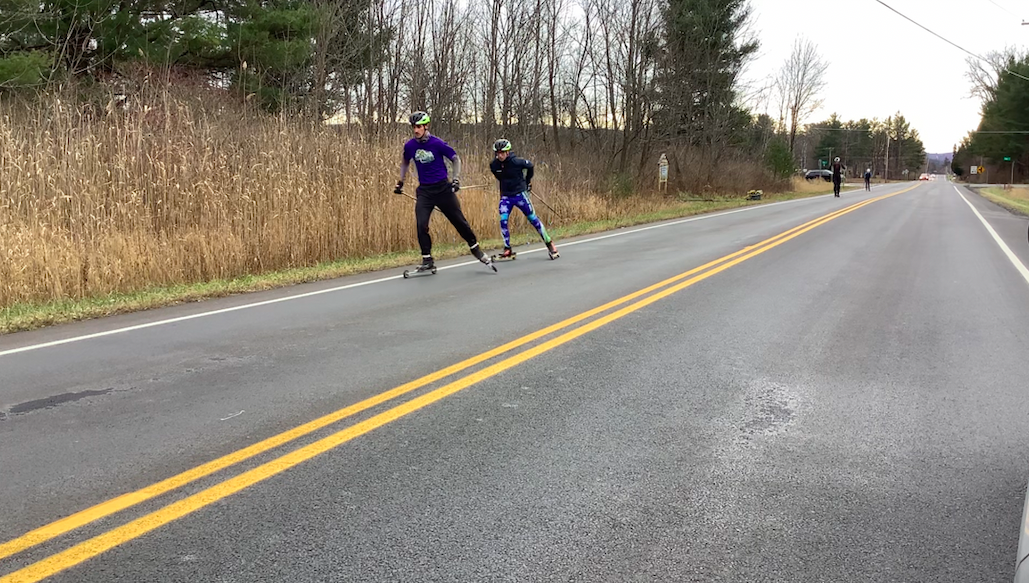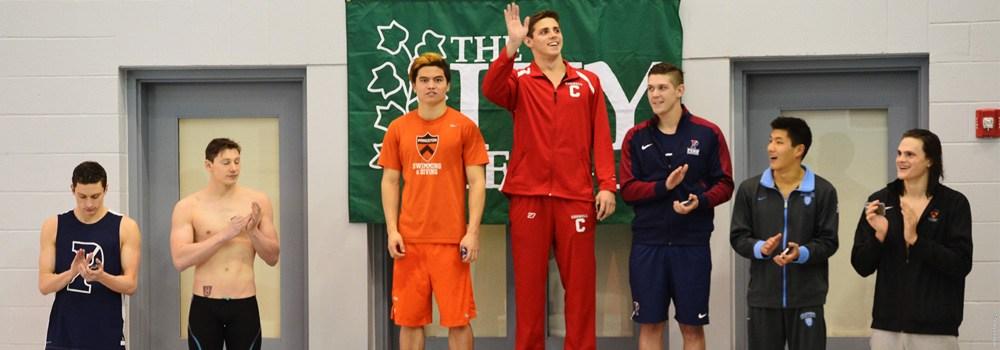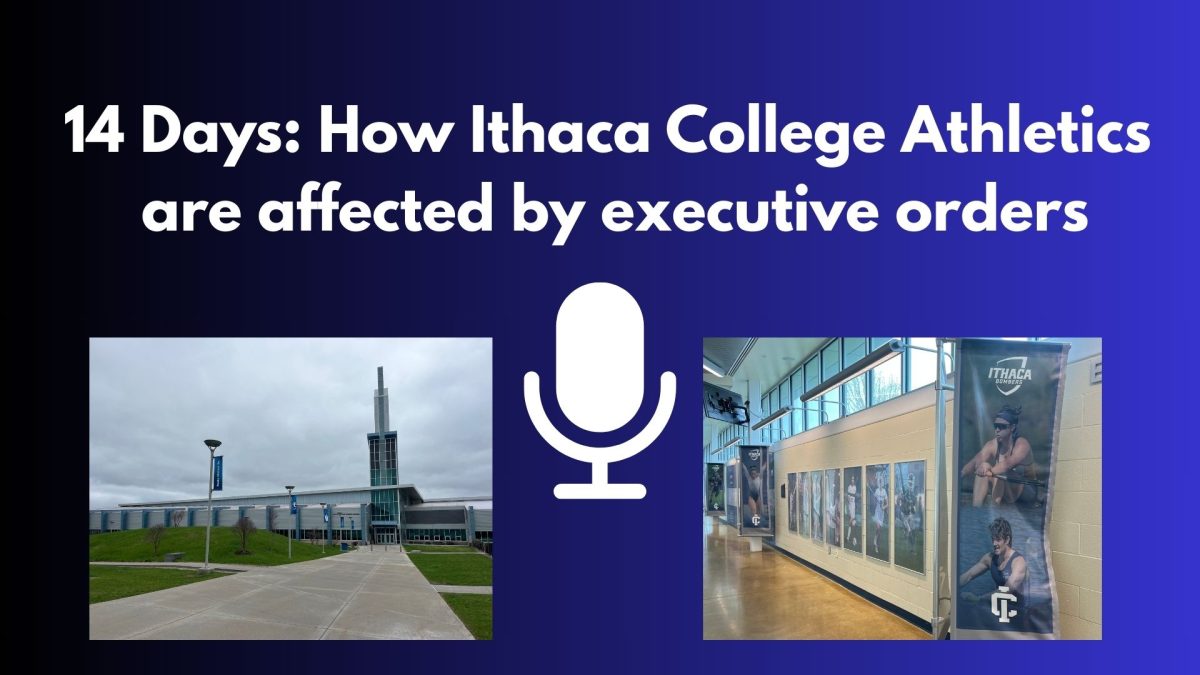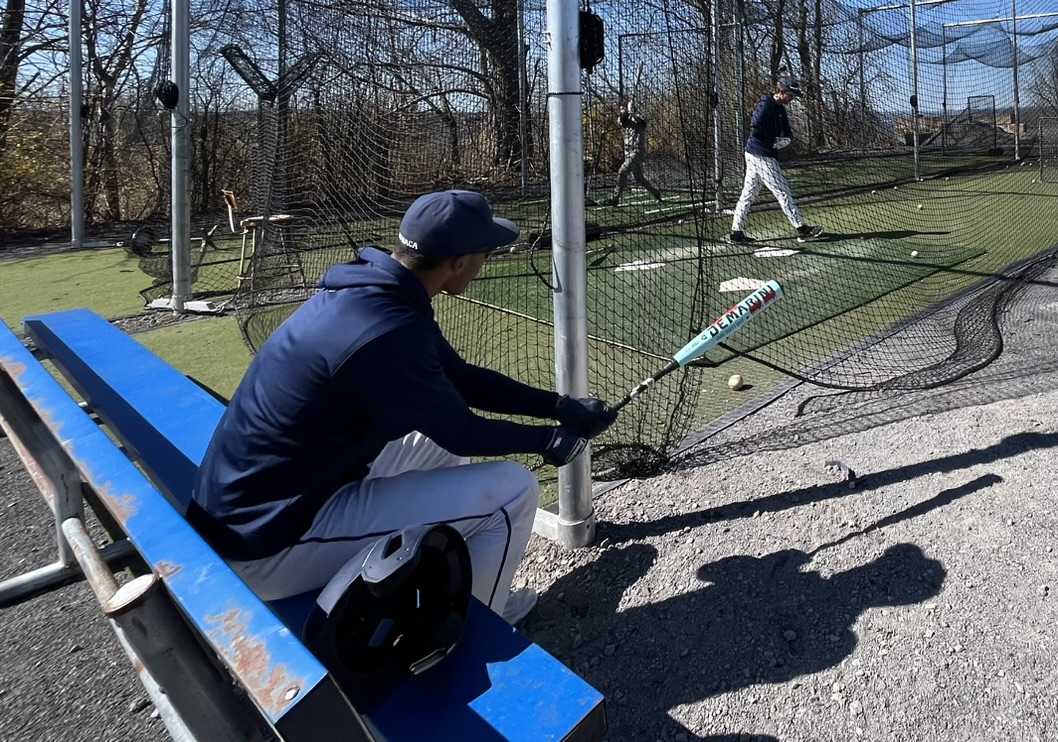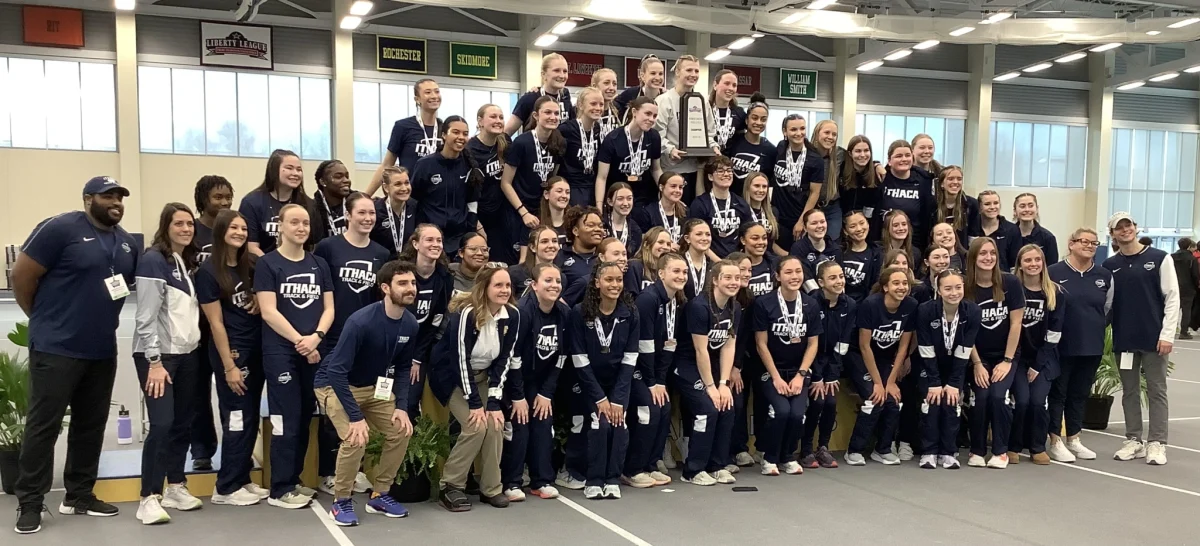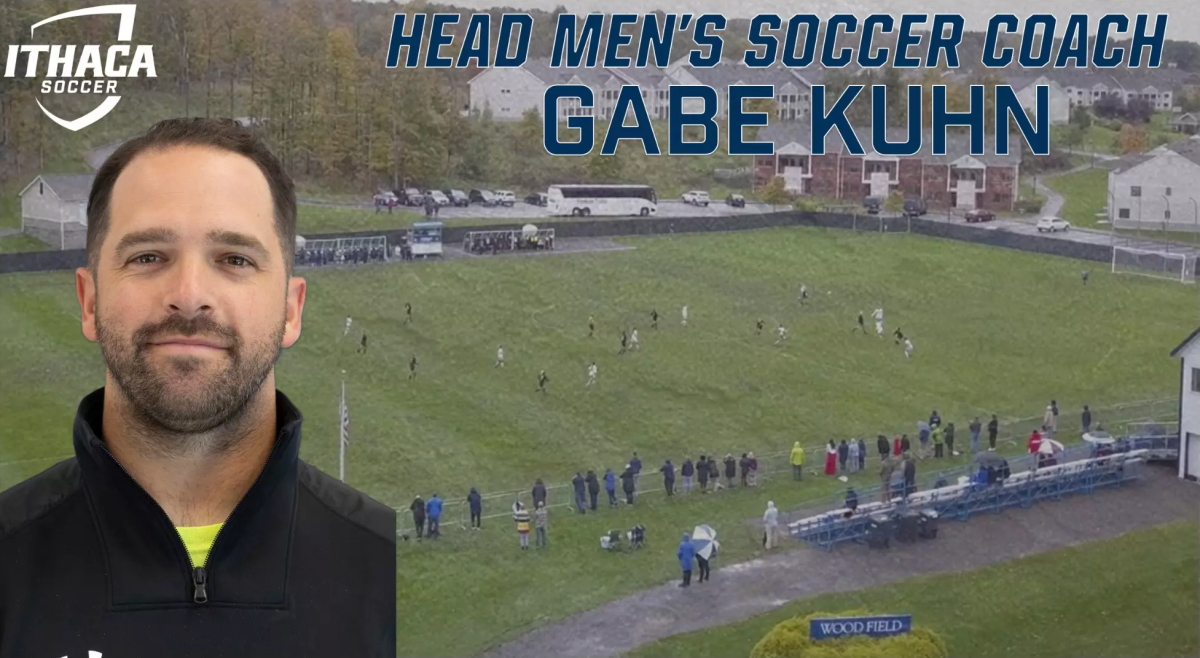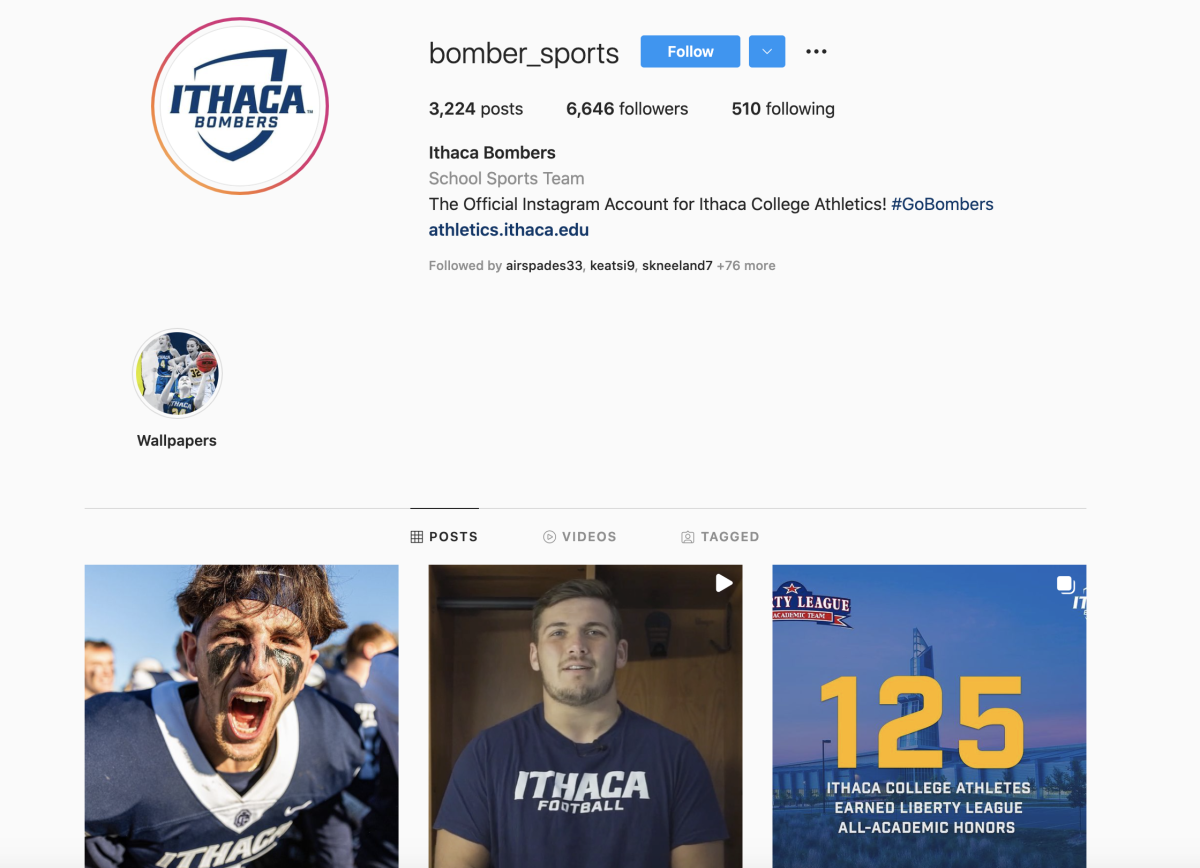Xavier Pommells is a senior athlete at Ithaca College from Hempstead, NY. This season, Xavier took 8th place in his weight bracket in the NCAA Wrestling Championship at Division III.
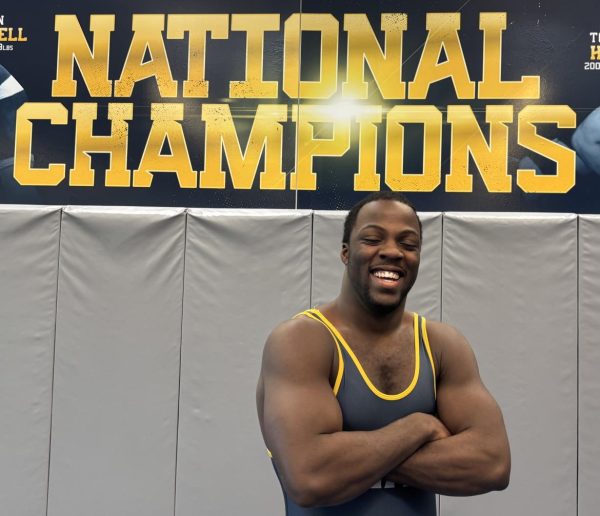
For Xavier, winning has come with a cost — and significant growth.
Xavier remembers having a panic attack at his debut match on the team.
Determined to win, he said he experienced a “catastrophic performance.” He described the uncomfortable sensation as “almost like drowning, fighting to catch my breath and letting my survival instincts kick in.”
“The biggest level of stress that an athlete undergoes is the stress that we put on ourselves,” Xavier said.
The high expectations and competitive nature of a sport can affect emotional experiences, like anxiety, or trigger symptoms of existing mental disorders, experts say.
Under pressure
Perfectionism is a major catalyst of stress for college athletes, internalizing failure for not meeting or exceeding a certain level of performance. According to an article published by the Society for Psychotherapy, research has shown this pressure undermines an athlete’s performance and well-being.
According to McLean Hospital, this strain can have adverse effects on mental health, which 35% of elite athletes report having concerns about.
Being an NCAA athlete is especially draining. According to a 20-year research analysis published in the British Journal of Sports Medicine, suicide rates in college athletes doubled from 2002 to 2022.
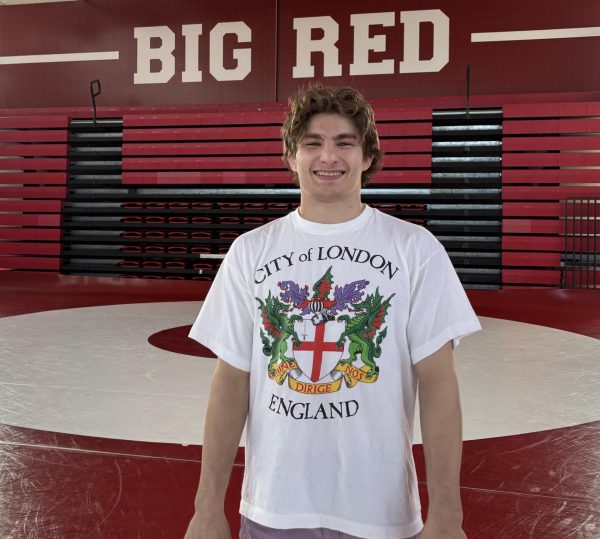
Ithaca College and Cornell acknowledge the psychological strain that athletics and education can pose. To address this, the two institutions have taken the initiative to ensure their athletes’ mental health.
Brian Petersen is director of Counseling and Psychological Services at Ithaca College. He works closely with student athletes at IC.
“There are a lot of pressures that can come in your final year. [You want to] have a big year, and what happens if you don’t?”
This pressure to perform is not limited to the start or end of a year. The overwhelming feeling of having to be at the top is a challenge athletes face throughout their entire careers.
Cornell sophomore Meyer Shapiro, a two-time NCAA All-American wrestler from Woodbine, MD, also spoke about the emotional roller coaster of elite competition. This year he placed fifth, which is down from third last season.
“To take the first loss was tough. I was really heartbroken, and then the loss going into the match after that, my heart really wasn’t in it,” he said. “It was kind of hard to perform the way that I wanted to, but I finished on a win.”
Added layers of stress
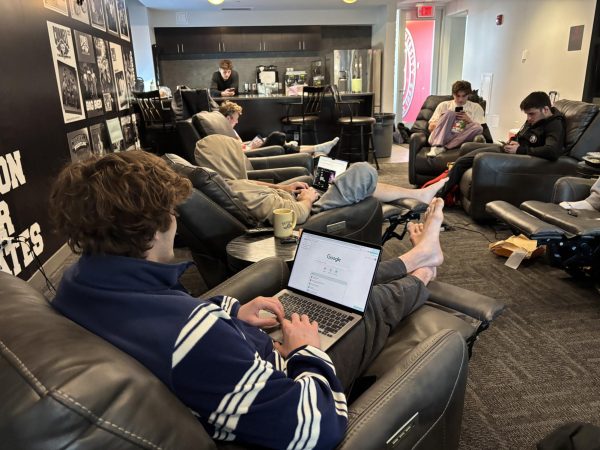
A meta-analysis published in 2023 by the International Review of Sport and Exercise Psychology showed athletes reported an overwhelming need to prove themselves in the classroom and in competition. The intense pressure to maintain a high level of performance in both areas can induce chronic stress and anxiety in all aspects of life.
“Sometimes wrestling’s not that hard, and school is really hard, and then vice versa, wrestling is really hard, and school is not that hard,” said Meyer. “But when both school and wrestling are hard, it’s really [difficult].”
Xavier agreed. “We dominate the mat, [and] we should dominate the classroom,” Pommells said.
Susan Basset, associate vice president and director of Intercollegiate Athletics and Campus Recreation at Ithaca College, said she feels “there is an added layer of stress.” She said on top of managing a sport, college athletes are “doing the same thing everyone else is doing.”
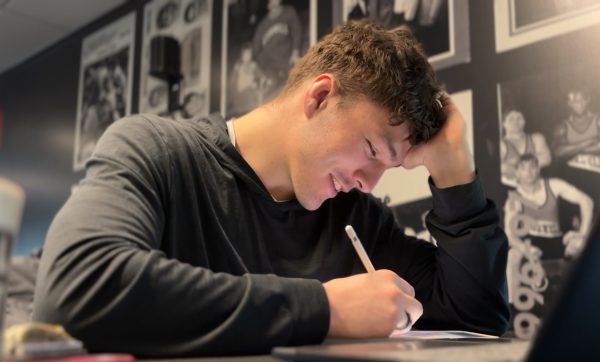
The challenge of managing time and responsibilities can lead student-athletes to burnout. Burnouts are mental and physical exhaustion from being overwhelmed. If not addressed, burnout can lead to or worsen mental health disorders, according to a measurement study published by the Kansas Journal of Sports Medicine in 2022.
Sport-related psychology services and programs
According to Bassett, there are a variety of internal department resources at Ithaca College available for student-athletes’ mental health.
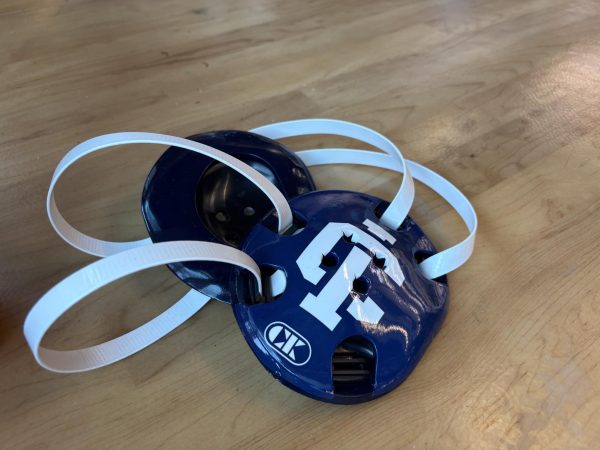
The athletic department has a relationship with its graduate program in mental performance, where
students work as interns with teams to enhance mental performance. There are also liaisons, student athletic advisors for teams, and a Leadership Academy available for athletes to apply for, which can be especially beneficial for first-year athletes and team captains.
“Mentality is the biggest thing in any sport. You’d want to at least have the minimum of someone to talk to,” Xavier said.
For athletes looking for support for concerns regarding well-being, Bassett and Petersen recommend CAPS services, regardless of whether they are in a crisis or simply want to talk in a clinical setting.
Counseling and Psychological Services
Counseling and Psychological Services (CAPS) are available at both institutions. Their service is not limited to athletes but is established for all students to utilize, providing general therapeutic counseling.
“None of us, I would say, specialize in sports psychology,” said Petersen. “But oftentimes, the issues that athletes want to talk about are a combination of run-of-the-mill mental health issues.”
Though CAP counselors might not have a certificate in sports psychology, there may be some with a background in athletics who are still able to understand the culture and emotions that come with playing a sport, Petersen added.
Barriers to treatment
Petersen believes there are some “pernicious myths about CAPS” that deter students from using its counseling service.
Xavier concurred. He said what he’s heard about Ithaca’s CAPS is that there’s a waitlist and that “they only are urgent enough in terms of a mental breakdown…when you see that living isn’t fit anymore.”

However, Petersen said, CAPS does not have a waitlist, and any student can be scheduled for an intake appointment as early as the next day, regardless of urgency.
“The only barrier to getting an appointment is making a phone call,” he said.
And some student athletes understand the part they play in advocating for themselves.
“A lot of it depends on me,” Meyer said.
